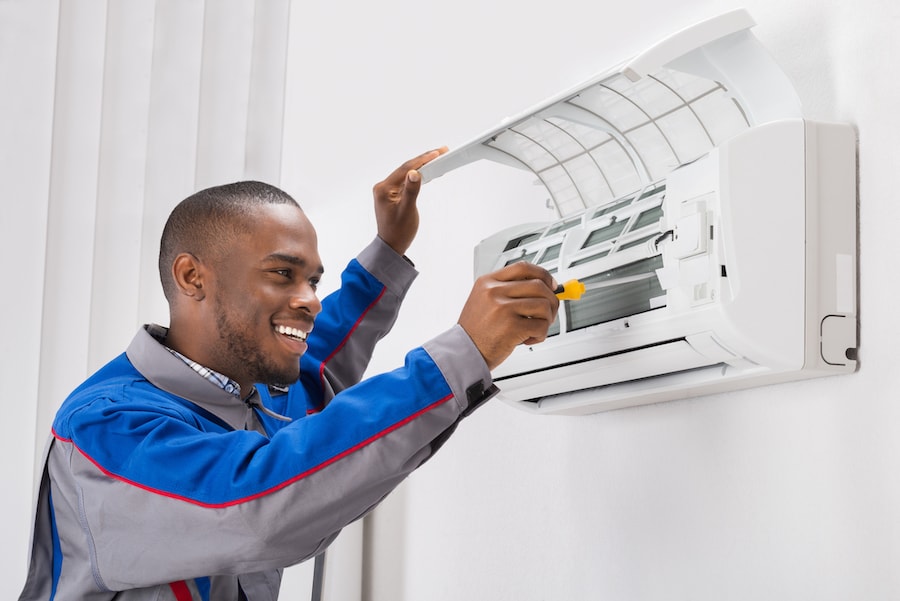As property owners increasingly seek more sustainable and cost-effective solutions for their heating and cooling needs, geothermal HVAC systems have emerged as a strong option. Such advanced systems utilize the earth's natural energy to provide simultaneous heating and cooling, offering a distinctive alternative to conventional HVAC setups. But are https://www.berkeys.com/air-conditioning/ ?
In this guide, we will delve into the basics of geothermal HVAC systems, exploring how they function and comparing their advantages and disadvantages. We will also discuss important considerations for homeowners thinking about this technology, alongside practical tips for maximizing efficiency and indoor comfort. If you are new to HVAC concepts or seeking upgrade your existing system, this guide will provide insightful insights into the potential of geothermal energy in your home.
Understanding HVAC Basics
HVAC refers to the process of heating, providing ventilation, and air conditioning, which is a system created to provide thermal comfort and satisfactory indoor air quality in home and commercial establishments. Understanding HVAC is essential for property owners and building managers alike, since it consists of various components that work in unison to regulate the environment within a space. The heating component aspect typically includes heating units or heat-transfer systems, while cooling is provided by air conditioning units systems. The ventilation process is crucial for ensuring that fresh air circulates, helping in controlling humidity and improving the quality of air indoors.
Each part of an HVAC system plays a distinct function in keeping a comfortable environment. The heating elements mechanisms, be it natural gas, electricity, or geothermal energy, warm the space during colder seasons. Air conditioning units cool the area in summer, often utilizing refrigerants to take in heat indoors. Proper ventilation systems are essential for eliminating contaminants and ensuring a steady airflow, which contributes to a more beneficial living environment. Understanding how these elements interact can assist homeowners troubleshoot issues and value their importance.
To fully utilize HVAC systems, knowledge of their operation and upkeep is necessary. Regular maintenance tasks, like changing air filters and scheduling regular check-ups, can avert common problems and prolong the system's lifespan. Homeowners should also be conscious of energy efficiency standards and the possible benefits of upgrading to intelligent systems, which can lead to large savings on utility costs. Familiarity of HVAC fundamentals not only enhances comfort but also encourages a proactive approach to home management.
HVAC Maintenance Essentials

Consistent maintenance is vital for keeping your HVAC system operating effectively and extending its lifespan. A properly cared for system not only offers optimal heating and cooling but also minimizes the risk of unforeseen breakdowns. Start with routine inspections to check signs of wear and tear. Replace or clean air filters once every three months, depending on how often you use it and filter type. Fresh filters boost airflow and indoor air quality, which can aid in reducing allergies and health issues.
In conjunction with regular filter maintenance, ensure that the outdoor unit is uncluttered of debris and vegetation. This allows for sufficient airflow and avoids overheating. Scheduling seasonal tune-ups with a professional technician can also identify potential problems that might lead to significant repair costs down the line. During these inspections, technicians typically check refrigerant levels, clean evaporator and condenser coils, and ensure that all power components are operating as intended.
Lastly, be sure to monitor your system's performance throughout the season. Keep an eye on strange noises or changes in efficiency, and tackle any issues promptly. This forward-thinking approach ensures that not only the longevity of your HVAC system but also helps preserve a comfortable indoor environment while potentially lowering your energy bills.
Examining Earth-based Options
Geothermal HVAC systems utilize the stable temperatures discovered beneath the Earth's surface to offer optimized heating and chilling for homes and commercial structures. By employing a network of underground pipes, these systems swap heat with the soil, substantially reducing the energy required for interior climate control. This sustainable energy source not just encourages eco-friendliness but also provides sustained cost savings on energy bills, making it an alluring option for eco minded consumers.
One of the main benefits of geo-thermal systems is their efficiency. Compared to standard heating and cooling systems, geo-thermal systems can be as much as four times more effective, as they move heat rather than create it. This effectiveness translates to reduced utility costs and a minimized carbon footprint, which is desirable in an era of increasing energy prices and increasing awareness of environmental change. Additionally, geo-thermal systems usually require not as much maintenance than conventional HVAC units, leading to their continued reliability and performance.
However, the upfront investment for geo-thermal HVAC systems can be considerable, due to the costs connected with construction and the essential ground loops. Homeowners must consider the initial expense against potential energy savings and government incentives for renewable energy systems. Over time, the ROI can render geo-thermal systems beneficial, particularly for those planning to live in their houses for many years. As technology progresses and costs gradually decline, geo-thermal HVAC options will likely become even more practical for a wider audience.
